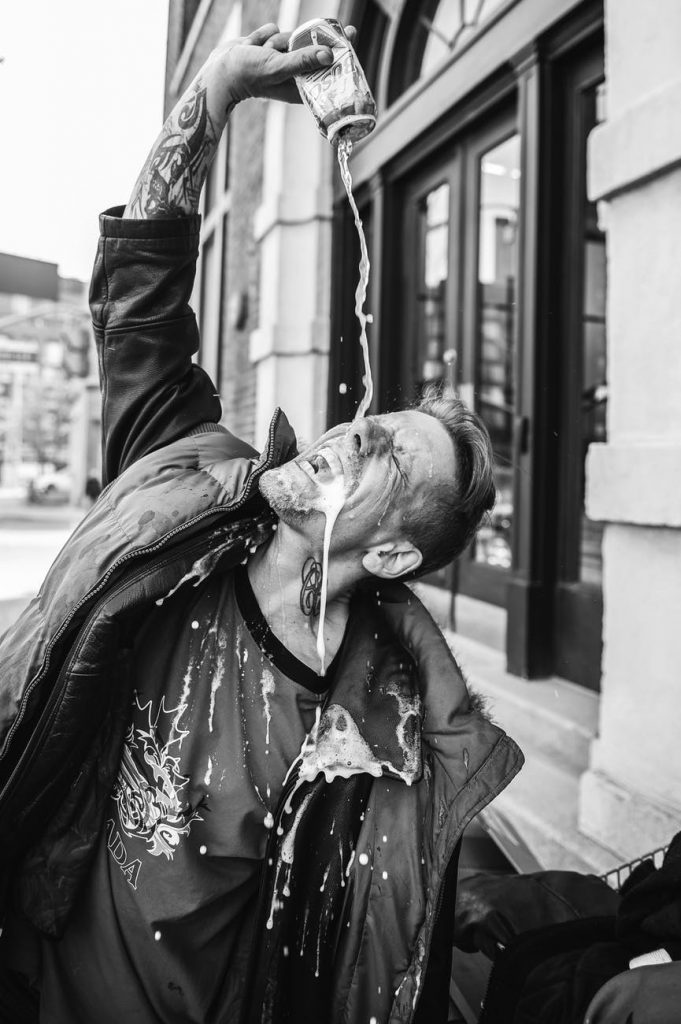What Are the Laws Concerning Liquor?

The sale and consumption of liquor is a common occurrence all over the world. Each country and each state has different laws that govern them. In every country, the liquor laws are defined to protect its citizens. In the U.S., the 21st Amendment to the Constitution is a major federal law that governs policies related to alcohol. The 21st amendment revoked the 18th amendment, which had mandated nationwide prohibition of alcohol. It was proposed on February 20, 1933, and was approved on 5th December 1953.
The Twenty-First Amendment to the Constitution includes three sections that mean:
- The Eighteenth Article of Amendment to the Constitution of the U.S. is repealed.
- The transport or import of intoxicating liquors into any state or territory in the U.S., or possession or use of intoxicating liquors, in violation of the laws is prohibited.
- This article will be inoperative if it is ratified as an amendment to the Constitution by resolutions in the several States, as provided in the Constitution.
The 21st amendment allows individual states in the U.S. to control the following:
- The distribution and sale of alcohol within the state
- The importation of alcohol into the state
- Statues regarding the possession of alcohol within the state
State laws often offer different rules and regulations to its residents, as well as different roles and responsibilities to local jurisdictions. So in each state, due to federal policy, a combination of federal, state, and local laws dictate the manufacture, sale, and consumption of alcohol, as well as the rules governing the violations of these laws.

What laws govern the retail sale and purchase of alcohol?
The sale of alcohol in any retail outlet is subject to the license the retail outlet has obtained from the government. The maximum level of alcohol content per drink and the maximum number of drinks that can be served to an individual at one time varies from one state to another and from one location to another.
What constitutes as an alcoholic beverage? As per the U.S. federal law, any beverage containing over 0.05 percentage of alcohol is considered an alcoholic beverage. The limit is honored by all states in the U.S. Every state has different rules governing the retail sale of alcoholic beverages. They have specific regulations on the retail sale and licensing of businesses that allow them to sell different types of alcoholic drinks. While some businesses are allowed to sell only wine and beer, some are allowed to sell liquor as well, depending on the license obtained.
Some states also have rules that do not allow “happy hour” or special offers. Many states regulate establishments from offering free alcohol with a meal, unlimited alcohol at a fixed price, or free alcoholic beverages on buying other alcoholic beverages.
If you are an individual who wants to buy liquor from a store, you are required to produce a government-issued identification card that has a photo, proving that you are of legal age to purchase alcohol. The acceptable forms of identification differ from one jurisdiction to another.
What are the federal laws governing the legal age for consumption and sale of alcohol in the U.S.?
It is always the combination of federal, state, and local laws that help shape the role that alcohol plays in the U.S. The most important law is the legal drinking age in each state. The 1984 Federal Uniform Drinking Age Act recognized the minimum legal drinking age as 21 years. Every state in the U.S. abides by this standard, with some exceptions. The federal government has the right to reserve a percentage of federal funding to those states that do not abide by the minimum standard.
Though all states abide by the rules, some states allow individuals under the age of 21 to consume alcohol under the supervision or guidance of parents, adult legal guardians, or adult family members. The rules on who qualifies as a family member or guardian differ from state to state. The other exception to this rule is that some states allow individuals under the age of 21 to consume alcohol in the residence of a parent or guardian, or their private residence.
In most of the states in the U.S., the legal age to serve alcohol is 21 years, where the primary function of the establishment is alcohol sales, such as a lounge or a bar. If the primary purpose of the establishment is food, but it also serves alcohol, the state relaxes the requirement to 18 years. The legal minimum age for a bartender is 21 years in most states in the U.S. But the nature of the establishment can result in certain exceptions. Individuals who sell alcohol in retail outlets, such as a cashier in a large retail store that also sells beer, wine, and liquor, may be significantly younger than 21 years old.
What constitutes as an offense?
As mentioned above, the federal legal drinking age in the U.S. is 21 years, with certain exceptions. The legal age for procurement and the use of alcohol differ from state to state. Many states, including Alaska, Colorado, Maryland, New Mexico, South Carolina, and Washington, among others, have some form of exception that permits underage individuals to procure or use alcohol. It is a crime to supply an underage person with alcohol irrespective of whether there is a purchase transaction or not, except in specific states where special consideration applies.

What are the exceptions to the national minimum legal drinking age?
Exemptions to underage drinking and alcohol-related activities in the U.S. include religious activities, lawful employment, educational purposes, law enforcement purposes, medical reasons, and parental, guardian, or spousal consent.
It is illegal to supply alcohol to underage individuals, and several states consider it a criminal offense. The only exception to this law are situations where alcohol is provided for medicinal purposes, or within a home environment. Any individual who knowingly supplies alcohol to an underage individual is committing a crime, except in certain cases, like the ones mentioned above.
What does the supply of alcohol mean? There is a wide range of activities that define the supply of alcohol, like the storage of alcohol at home where there is an underage individual and not blocking access. It means that the adult need not be at the premises or hand over the alcohol in person to the underage individual to be charged with the offense. But the law does not apply if the adult is not aware that there is alcohol on the premises.
What is the penalty for providing alcohol to a minor?
The supply of alcohol to an underage individual is a criminal offense, and one can be charged with a misdemeanor or a felony. Most times, it is considered as a misdemeanor and as a felony under certain circumstances. If it is considered as a felony, you may be charged if there is some type of accident or injury involved with the use of alcohol, or with repeated offenses.
Typical penalties involve:
- Jail sentences for misdemeanors range from several days to a year. A felony conviction may result in a jail term of at least a year.
- Fines for misdemeanors range between $500 and $1,000, depending on the circumstances, and may go significantly higher – up to $5,000. Fine associated with a felony are significantly higher and range in tens of thousands.
- Individuals convicted of supplying alcohol to minors may be put on probation and may be subject to community service.
- Businesses with liquor licenses may face administrative actions resulting in additional fines, license suspension, or revocation.
- Business owners and employees who are convicted can be subject to both personal and administrative actions.
Is there a penalty for the sale of alcoholic beverages to pregnant women?
Now, this is one serious offense that needs to be addressed properly. There are two parties at fault; in this case, the pregnant woman who purchases alcohol for personal consumption, and the seller who sells alcohol to the woman knowing that she is pregnant. Both parties knowingly put an unborn child’s life at risk. Unfortunately, there are no federal laws that limit pregnant women from using alcohol, and only eighteen states in the United States prohibit the sale of alcohol and alcoholic beverages to pregnant women.
When a pregnant woman consumes alcohol, the consequences are suffered by the fetus, which continues as the child develops, and is considered potentially harmful for the child. A fetus exposed to alcohol in the womb can have facial deformities, growth deficiencies, abnormalities of the skeletal system, and significant central nervous system impairment.
Different states have different legal provisions when it comes to the consumption of alcohol by a pregnant woman. States like Alabama, Colorado, Georgia, Indiana, Maine, Rhode Island, and Texas, among several others, have legal provisions that define alcohol use by a woman who is pregnant as a form of child abuse, and she may face legal charges of child abuse if proven guilty. But the provision is subject to the circumstances surrounding the case. The penalties for drinking while pregnant or determination of liability is established based on the case where there is no explicit law that forbids serving alcoholic drinks to a pregnant woman.
Depending on the case, the penalty will include a fine and jail time. An individual who serves alcohol in a professional establishment must be aware of any legal responsibilities regarding serving alcohol to pregnant women. It is crucial that these establishments consult with attorneys and be mindful of any legal consequences and requisites within their state, and educate the bartenders as well.
Minnesota, North Dakota, Oklahoma, South Dakota, and Wisconsin are the only states in the U.S. that have civil commitment laws that can be imposed on pregnant women who drink alcohol.
Some states also have regulations that allow concerned authorities to charge a woman with a criminal offense if she gives birth to a baby who’s diagnosed with fetal alcohol syndrome.

What constitutes as a DUI?
Blood Alcohol Concentration (BAC) is a standard measure of the amount of alcohol in an individual’s system and is commonly expressed in terms of percentage. BAC is often detected by an analysis of the individual’s blood, urine, or breath. For legal determinations of intoxication, certain jurisdictions specify the required or preferred type of measurement.
Several factors interact with the amount of alcohol a person uses to result in a specific BAC level. These factors include the individual’s age, weight, gender, amount of food consumed, differences in metabolism, among others. Every jurisdiction in every state has laws regarding minimum BAC level that establish limits of legal intoxication for driving, as well as public intoxication. Any individual found with BAC above the limit has committed a violation irrespective of any other evidence that shows that the person is sober.
The BAC limit in the United States was set at 0.08 percentage by President Bill Clinton in 1988, and the National Highway Traffic Safety Administration was chosen as the regulatory body responsible for upholding this statute. Most of the jurisdictions and states stick to this policy.
Supply of alcohol to minors in an offense, and so is individuals under the age of 21 driving while having any positive level of alcohol in their system. This law is strictly followed by all states in the U.S. To constitute a DUI offense, the individual’s BAC is considered in most jurisdictions as an indicator of their level of intoxication. If the measurement is over 0.08 percent, it supersedes any other information, which includes field sobriety test as well, and constitutes as a DUI, a violation of liquor laws. If the BAC level is below 0.08 percent, the police officers and other authorities use observational data to suggest whether the person is intoxicated.
What is the penalty for driving under the influence of alcohol?
The penalty for driving under the influence or even public presence while intoxicated differs from one state to another. The penalties include maximum jail term, fines determined by the state, and driver’s license restriction. Every jurisdiction has the flexibility to implement these penalties under specific situations.
Depending on the state, driving while intoxicated fall under several legal names, and the consequences of being pulled over for a DUI also vary. Different states in different jurisdictions of the U.S. have different decrees concerning the status of repeat offenders. Repeat offender means that the individual has a big drinking problem, that includes binge drinking, and alcohol use disorder, and must seek immediate help. Repeat offenders have their license revoked or suspended and must work to get it back. Typically, the suspension lasts anywhere from three months to a year, depending on how intoxicated the person was, whether the individual is a repeat offender, and whether there was an accident involved.
How can you get your license back?
If this is the first DUI, the individual’s original license is taken by the arresting officer and replaced with a temporary one that expires on the date of the hearing. If the individual fails to request a hearing, it leads to permanent suspension of the driver’s license. Rarely does the hearing and pleading the case successfully reinstate the license, but there is no loss in trying. Another instance that will suspend the driver’s license is the refusal to give urine or blood sample or take a breathalyzer at the scene of the arrest.
To get the suspended license back, the individual must follow the four basic steps mentioned below:
- The individual must complete court requirements, which may include entering into an alcohol treatment program.
- They must contact the insurance company, follow their requests, and get proof of car insurance.
- Then, they attend the DUI hearing on the given date and present their case.
- Last, they pay the required fees, which include court fees and reinstatement fees, among others.
The alcohol treatment program may vary according to the state and the seriousness of the intoxication for which the license was suspended. The individual may need to attend a few hours of alcohol safety education or attend an alcohol detox and rehabilitation program. Although some may believe the punishment is a little harsh, the seriousness of the consequences of driving under the influence must be made known.

Some state/county liquor laws
The laws in each state are different from the others and also depend on federal laws governing them. There are some obscure drinking laws in each state in the U.S., and these laws are just some among the many laws that govern each state.
Some of these laws include:
- Alabama: Any beer bottles larger than 16 ounces is illegal.
- Alaska: It is illegal if you enter a bar when you are already drunk, and you continue to stay when you become drunk.
- Arkansas: If you are older than 18 but younger than 21, you will have to write a themed essay on liquor, wine, or beer, along with paying the fine if you are caught with alcohol.
- Delaware: The sale of alcohol on big holidays such as Christmas and Thanksgiving is illegal.
- Hawaii: Minors who drink and drive receive a DUI. Their parents or legal guardians are required to go to an educational alcohol abuse class.
- Missouri: It is illegal to sit on the curb of the city street and consume beer from a bucket.
- Nebraska: It is illegal to have any physical contact with the bar attender in the state as per Liquor Control Commission Rules and Regulations.
- New Hampshire: It is illegal to drink in graveyards.
- Pennsylvania: A man cannot purchase alcohol without written consent from his wife in Newton, Pennsylvania.
- West Virginia: It is illegal to carry more than ten gallons of liquor into the state for personal use.



